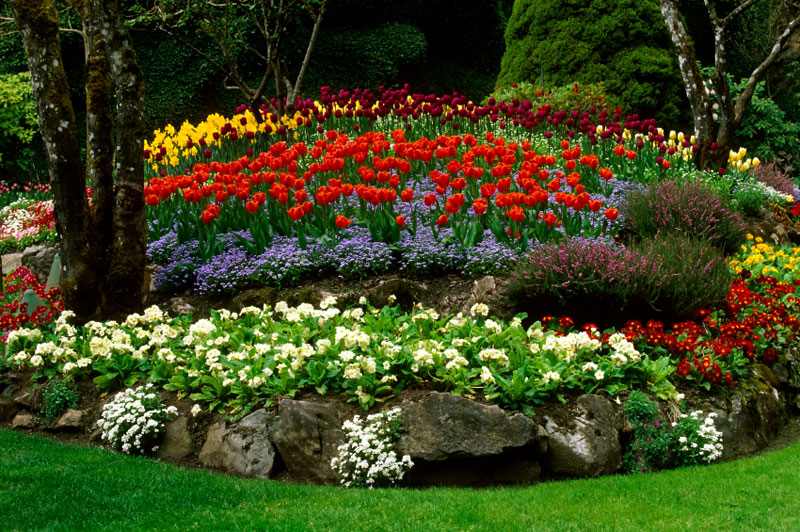Whether they are annuals, perennials, or biennials, flowers are a beautiful way to compliment any landscape by adding natural vibrant color and life to your property. The three main classifications of plants (annuals, perennials, and biennials) refer to the lifecycle and growing tendencies of a given flower.
While the lifecycle of annual flowers only lasts for the duration of a single growing season, a perennial can return for a number of seasons without replanting. Biennials are similar to perennials in the sense that they re-emerge in the spring, however, they are also similar to annuals, as their lifecycle ends after just two growing seasons. Biennials will grow partially during the first season, and finish their lifecycle during the second season prior to dying completely. With spring quickly approaching it is important to note that these early warmer months are the ideal time to plant your annual flowers. Since annuals continue to grow throughout their entire lifecycle, the overall size, fullness, and beauty of your annual flowers depends heavily on the timing of your planting. Planting as early as possible, just after the last frost, ensures that your annual flowers will reach their full flowering potential; the more time, the bigger and more beautiful.
Annuals are a popular choice for beautifying your property as they grow quickly, are brightly colored, are easy to plant, and are relatively inexpensive when compared with other flowers. Since annuals do not rely on their root system to survive the colder months like perennials, the majority of their energy is dedicated to creating flowers and seeds. By focusing their energy on seed creation, annuals grow quickly, with lots of flowering, and therefore provide significant color and aesthetics to your garden and property. In addition to the timing of planting, the amount of sunlight also has a significant impact on the appearance and health of your annual flowers. While some annuals such as Begonias can grow in both shade and direct sunlight, most annuals thrive in direct sunlight, and the more sun they get, the more flowers will grow. Additionally, annuals tend to require nutrient rich soil, which can be achieved by adding composted organic matter into your beds prior to planting.
While there are hundreds of different kinds of annuals, Petunias, Marigolds, Zinnias, and Pansies are popular and easy choices to add a splash of vibrant color to your garden. With just this basic information, you are now ready to plant, but you may consider contacting a professional in order to ensure the most up to date techniques for planting and maintaining your annuals and other flowers. Annuals are an easy, inexpensive, and fun way to bring liveliness to your garden, so this spring, don’t shy away from color and excitement; plant some annuals!
If you would like to learn more about our services related to annuals, visit our website at www.rilawncare.com or call us at 855-RILAWNS!


